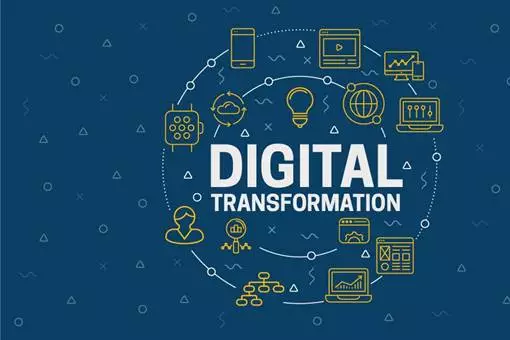25 Years Of The World Wide Web: What Comes Next?
- 27th March 2014
- Innovation & Technology
The World Wide Web, the brainchild of Sir Tim Berners-Lee, turned 25 this month. Being one of the greatest inventions of our time, how will the future of the internet look?
It’s hard to imagine a time when the internet didn’t exist. Without social media, live TV streaming, online news channels and all the other functions we expect of the World Wide Web, society would look very different. Now, as the internet reaches its quarter-century, users are wondering what the future of the web will look like.
12 March marked the 25th anniversary of the day when computer scientist Sir Tim Berners-Lee put forward his proposal for a system that would allow information to be shared between computers. Working at CERN at the time, his superiors couldn’t justify the investment but he worked on it in his free time and in 1993, CERN eventually announced that the technology would be free to everyone – forever.
Sir Tim tells the story in a special guest post on Google’s blog, in which he also considers where the internet is headed. For him, the most important questions are privacy and accessibility: he talks about helping the 60 per cent of the world’s population who are not online to get there, as well as supporting all world languages. Significantly, he also refers to issues of censorship and a system of controls to hold organisations that use web-based surveillance to account.
“Will we allow others to package and restrict our online experience, or will we protect the magic of the open web and the power it gives us to say, discover, and create anything?” he writes. “How can we build systems of checks and balances to hold the groups that can spy on the net accountable to the public?”
Sir Tim Berners-Lee – Inventor of the World Wide Web Pic: Knight Foundation
As part of a quest to answer these questions and help protect users, Sir Tim is calling for an internet bill of rights – a legal framework which sets out the rights and responsibilities of web users and authorities. Speaking to the Guardian, Sir Tim said that the web is struggling under the weight of corporate and governmental influence and that his concept of a “global constitution” is necessary to keep the web free and open. His idea is being integrated into the Web We Want campaign, to which users can send in suggestions for the issues they would wish to see addressed.
But the future of the web will not be entirely dictated by privacy and freedom concerns. Over 1,000 new general top-level domains (gTLDs) are set to come online this year, which will mean new domain names become available for an unprecedented number of websites. London is one of the cities to have already announced it will have its own .london domain name soon, while .apple, .google and .microsoft have also already been taken. As Sophie Curtis writes in the Telegraph, this will mean much more choice for small businesses, who may then benefit from increased web traffic.
As well as users, there will be a massive increase in the number of devices that are connected to the World Wide Web. The so-called “Internet of Things” is fast becoming a reality and will allow users to remotely control any number of appliances – and those machines will also be able to talk to each other. The “smart fridge” and the “smart washing machine” could be fixtures in every home before too long.
The web is constantly evolving, and it will never emerge from a state of flux. But at the age of 25 it is expanding and developing at breakneck speed. As Hal Varian, Google chief economist, said in a recent Pew Internet report, it is guaranteed to have a major impact on everyone in the world.
“The biggest impact on the world will be universal access to all human knowledge,” he said. “The smartest person in the world currently could well be stuck behind a plough in India or China. Enabling that person — and the millions like him or her — will have a profound impact on the development of the human race.”
Other News
How Leadership Shapes Digital Transformation
Being digitally driven is a necessity right now for every business, but just acquiring new technology isn’t enough as implementation…
Top 3 Big Data Trends in 2020
Data and technology have made their way into our lives and have forever changed the way we use the internet.…
Technology failures changing consumer attitudes in banking, study shows
A study from data analytics firm Consumer Intelligence has highlighted the impact of technology failures in banking, with more than…



